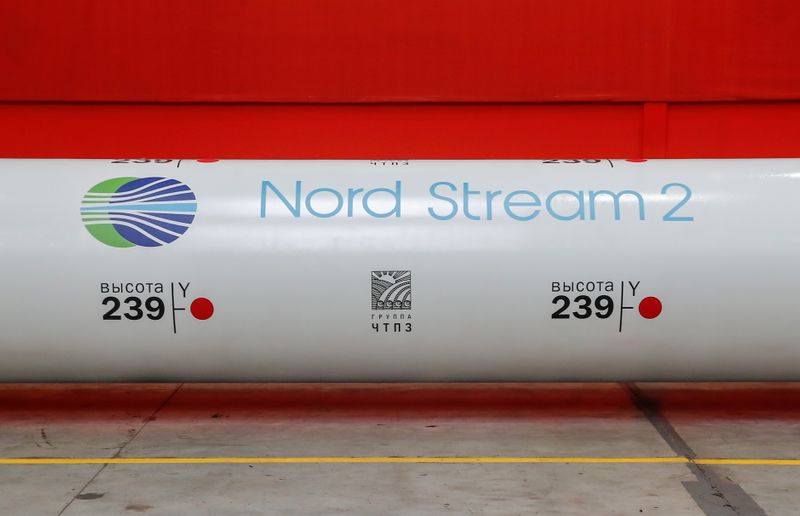BERLIN (Reuters) – Germany said on Sunday it was continuing to work closely with the United States on implementing a deal on the Nord Stream 2 pipeline, which runs under the Baltic Sea and carries gas from Russia to Germany.
Germany’s foreign ministry said it continued to coordinate closely with the U.S. administration on implementing a joint declaration on the $11 billion pipeline.
The Biden administration has waived sanctions on the pipeline operator and made a deal with Germany in July, although last week it imposed further sanctions targeting Russia-linked Transadria Ltd and its vessel.
“We fundamentally reject sanctions among allies,” it said in response to a query from Reuters about a report by Axios, which said Berlin had urged members of the U.S. Congress not to sanction the Nord Stream 2 pipeline as doing so would “weaken” U.S. credibility and “ultimately damage transatlantic unity”.
The United States and some European countries oppose the pipeline which bypasses Ukraine.
They say it would make Europe too reliant on Russian gas, but some other European governments say the link is vital to secure energy supplies.
Germany has agreed to take action if Russia uses energy as a weapon in its relations with Ukraine, but the deal does not provide a specific criteria for how that would be judged.
News website Axios cited a Nov. 19 document outlining steps Germany would take, including “strong public messages” condemning Russia’s behaviour and assessing the suspension of political meetings.
At the EU level, the document said Germany was “actively participating in the process to identify options for additional restrictive measures”, Axios said.
The document also said Nord Stream 2 presented “no threat to Ukraine as long as reasonable gas transit is ensured,” and referred to potential sanctions on the pipeline as “a victory for Putin” as it would divide Western allies, Axios added.
(Reporting by Madeline Chambers; Editing by Alexander Smith)






















